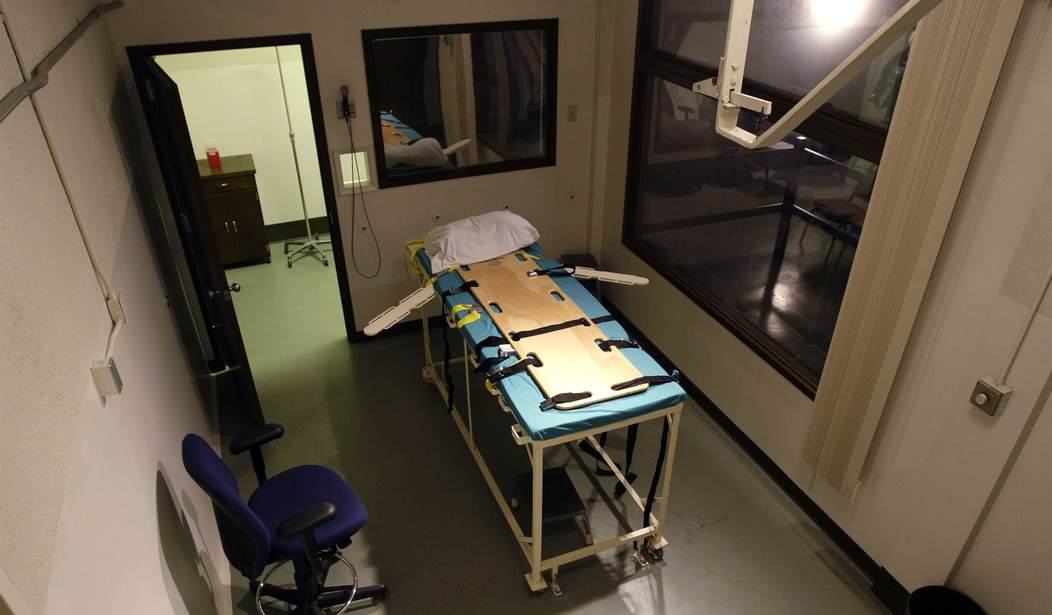Many people of faith agree that human life begins at conception and must be honored from that moment on. Surprisingly, some people stop there, seeing the beauty in an unborn baby but rejecting a true culture of life that prioritizes the protection of life in every possible circumstance. Many of us believe that life must be protected, from the first cells growing in a mother’s womb to people nearing the end of life’s journey, no matter how they have lived their lives. We believe that choosing life means consistently choosing all life.
This is why people of faith are deeply troubled by the recent announcement that our federal government plans to restart executions after more than a decade-long hiatus. Our faith tells us that life is God’s sacred work and it is His ultimate creation.
Christians, like all Americans, are turning away from the death penalty. A 2017 Gallup poll showed public support for capital punishment at a 45-year low, and Gallup’s 2018 poll revealed that less than half of Americans believe the death penalty is applied fairly. Pew polls in recent years have shown that support for the death penalty is in decline across all religious groups and that a majority of Catholics are against the practice. This was true even before Pope Francis declared the death penalty “inadmissible” in 2018.
All life is sacred. Just as we see God’s work in a developing baby, we must also see God’s work in the potential for grace and redemption in people who have been convicted of serious crimes, including those upon whom society seeks to impose the greatest punishment. The unborn and the condemned are held equally in God’s protective hand, and it should not be for us to decide either’s fate.
We cannot honor life by taking life – that is a logical contradiction. Because of this contradiction, capital punishment just does not work. We say it will provide healing and closure to all victims, but it just as often does not. After already facing the heartbreak of losing a loved one, many victims subsequently experience even more trauma if the death penalty is used or considered in their case. For victims’ families, capital punishment means years of high-stakes court dates, emotional hearings, and unwanted attention. These terrible experiences would be avoided with sentences of life without the possibility of parole instead of death.
Recommended
In 2012, Marquette Law Review published a study of victims’ family members in Minnesota, a state that does not have the death penalty, and in Texas, which uses the death penalty more frequently than any other state. The Minnesota families were emotionally healthier and healing better at every stage of the process than the Texas families, in whose cases capital punishment was an option.
In valuing all life, we also recognize that many of those on federal death row are not the “worst of the worst” – often they are vulnerable people from exceptionally adverse backgrounds including poverty, addiction, neglect, abuse, and more. Some have an intellectual disability or serious mental illness, or received the harshest possible sentence despite playing a lesser role in a crime. Some too have not led lives of crime or depravity, but committed one terrible transgression for which they feel deep regret and shame.
In fact, the federal death penalty has many of the same well-documented flaws as the state-administered death penalty. It is used arbitrarily, with just three states responsible for nearly half of all federal death sentences. More troubling is that federal death sentences are applied in racially-biased ways. Thirty-four of the 61 prisoners on federal death row are people of color; 25 of them are Black men. These issues concern all Christians too, as they do people of other faiths.
One of the most important reasons to promote a culture of life and oppose the death penalty – along with murder in all its forms – is that only God knows His plan for each of us. There are prisoners on federal death row who, with time for reflection and study, have given their lives over to God and repented of their sins. Unlike the death penalty, life without the possibility of parole acknowledges that even while incarcerated, a person can still find God and dedicate his or her life to the Lord.
Life without parole, too, is a harsh and permanent punishment. Indeed, with severe sentences and modern prison technology, we can keep our society safe without resorting to the death penalty, leaving open the possibility for remorse, rehabilitation, and redemption as well. All things are possible when we promote a culture that celebrates the sanctity of all life. Each precious new life is miraculous and even the worst sinner can be redeemed through His love.
My faith tells me that the death penalty is wrong, and the federal government should not be in the business of execution. God has shown us what to aspire to: love, forgiveness, compassion, mercy, and other Christian values. Above all, He calls us to nurture a culture of life for all.
Abby Johnson is founder and director of And Then There Were None and author of "Unplanned" and "The Walls Are Still Talking."

























Join the conversation as a VIP Member